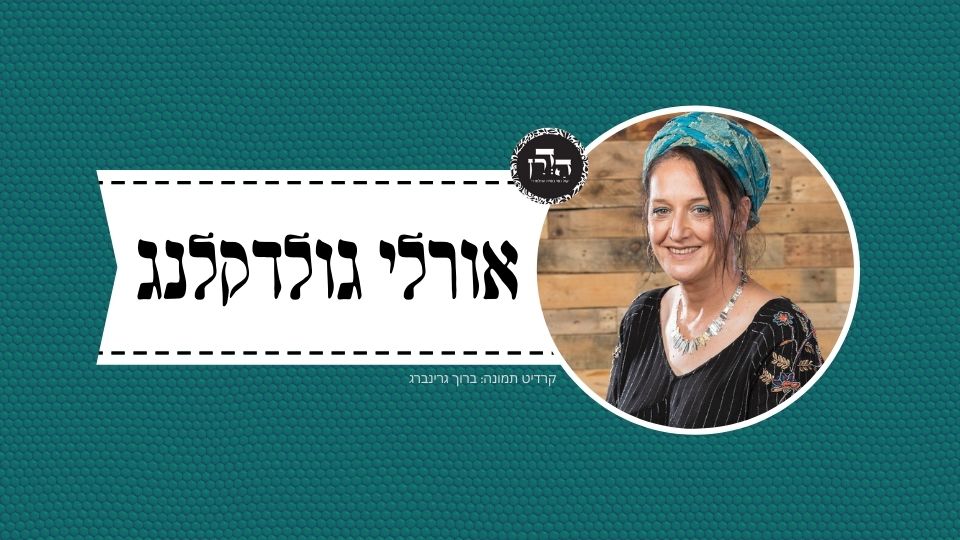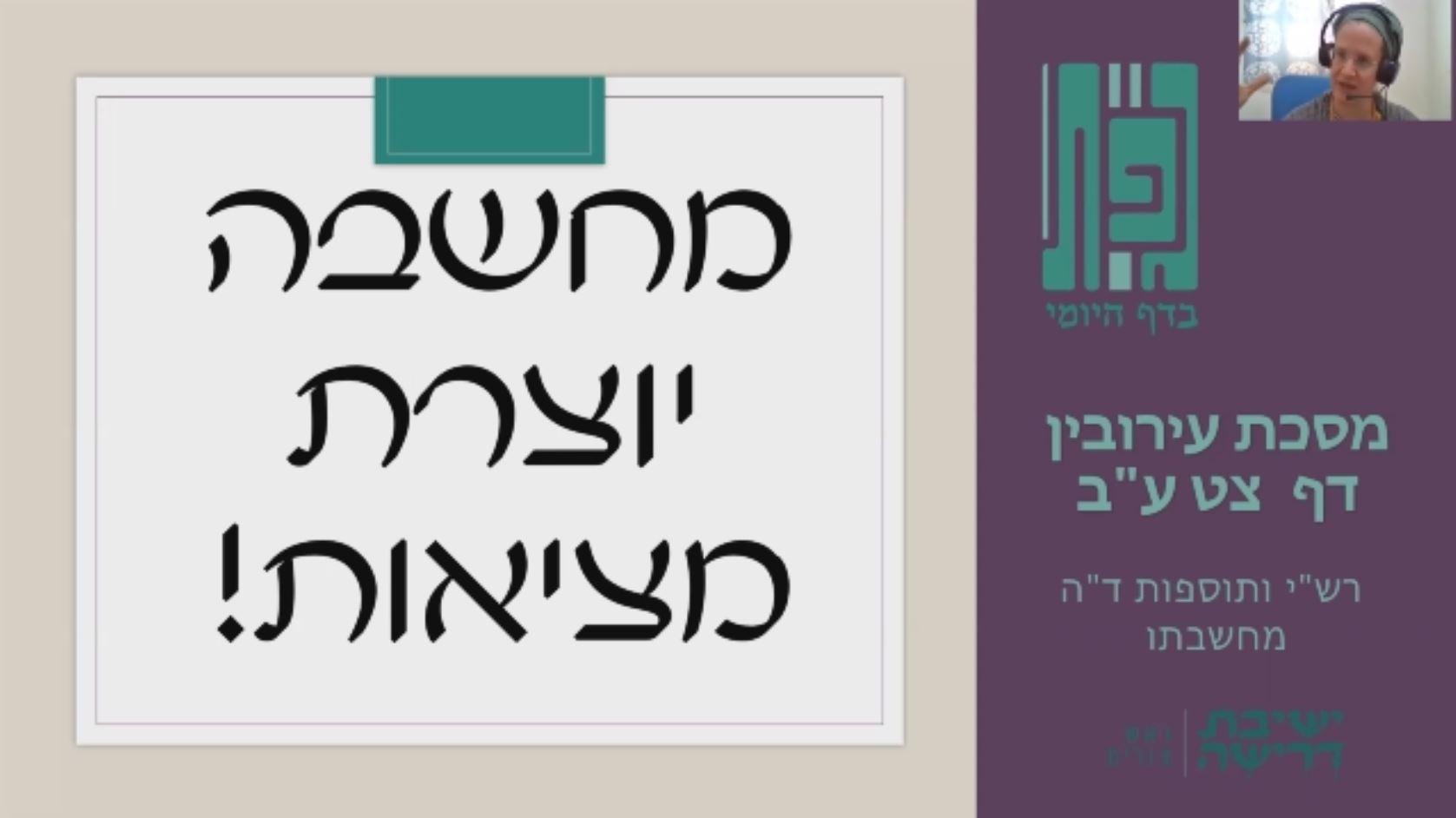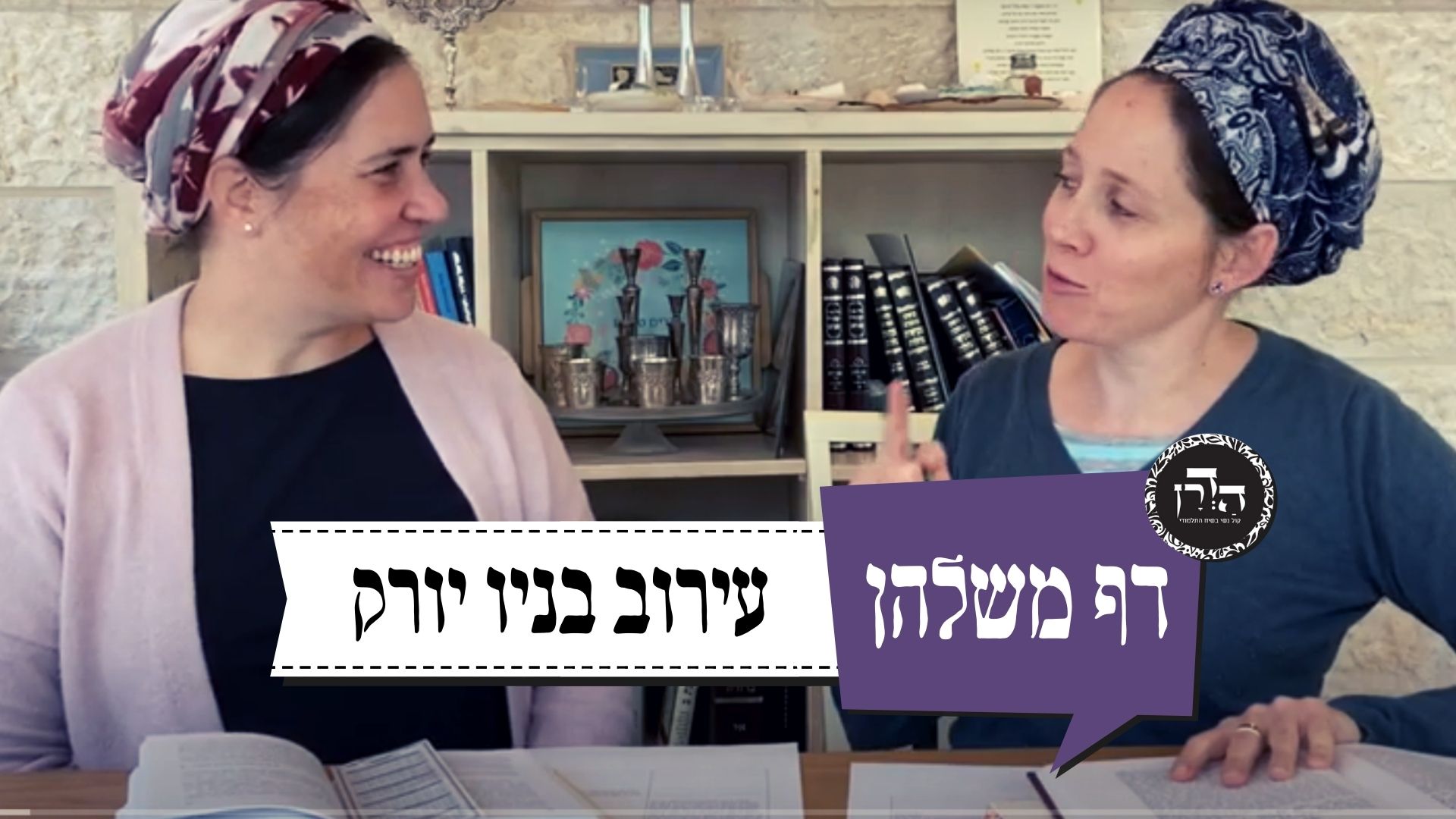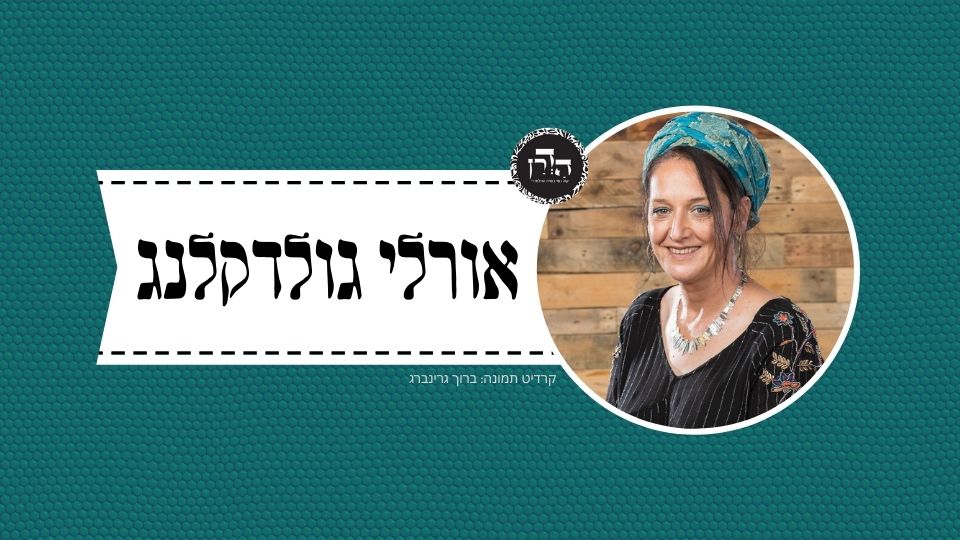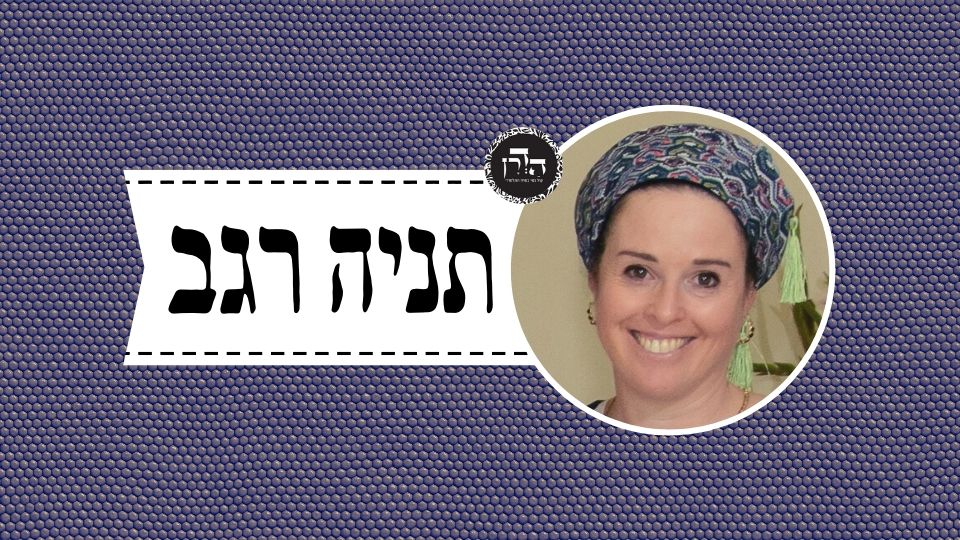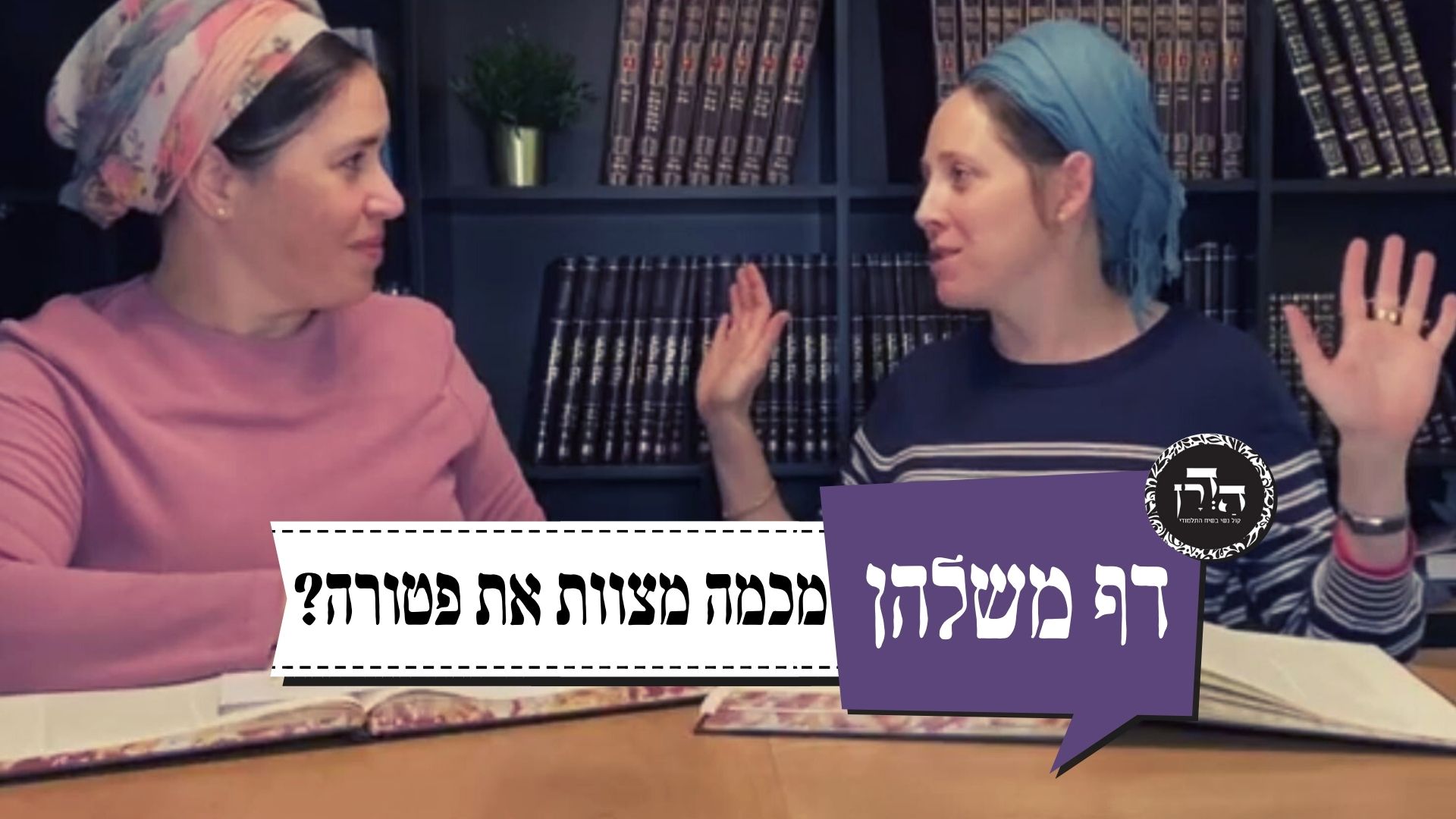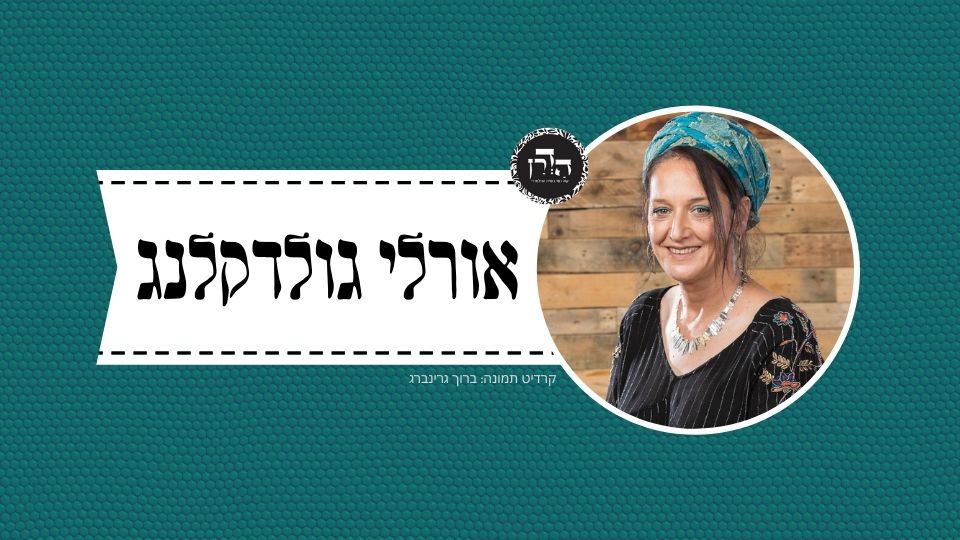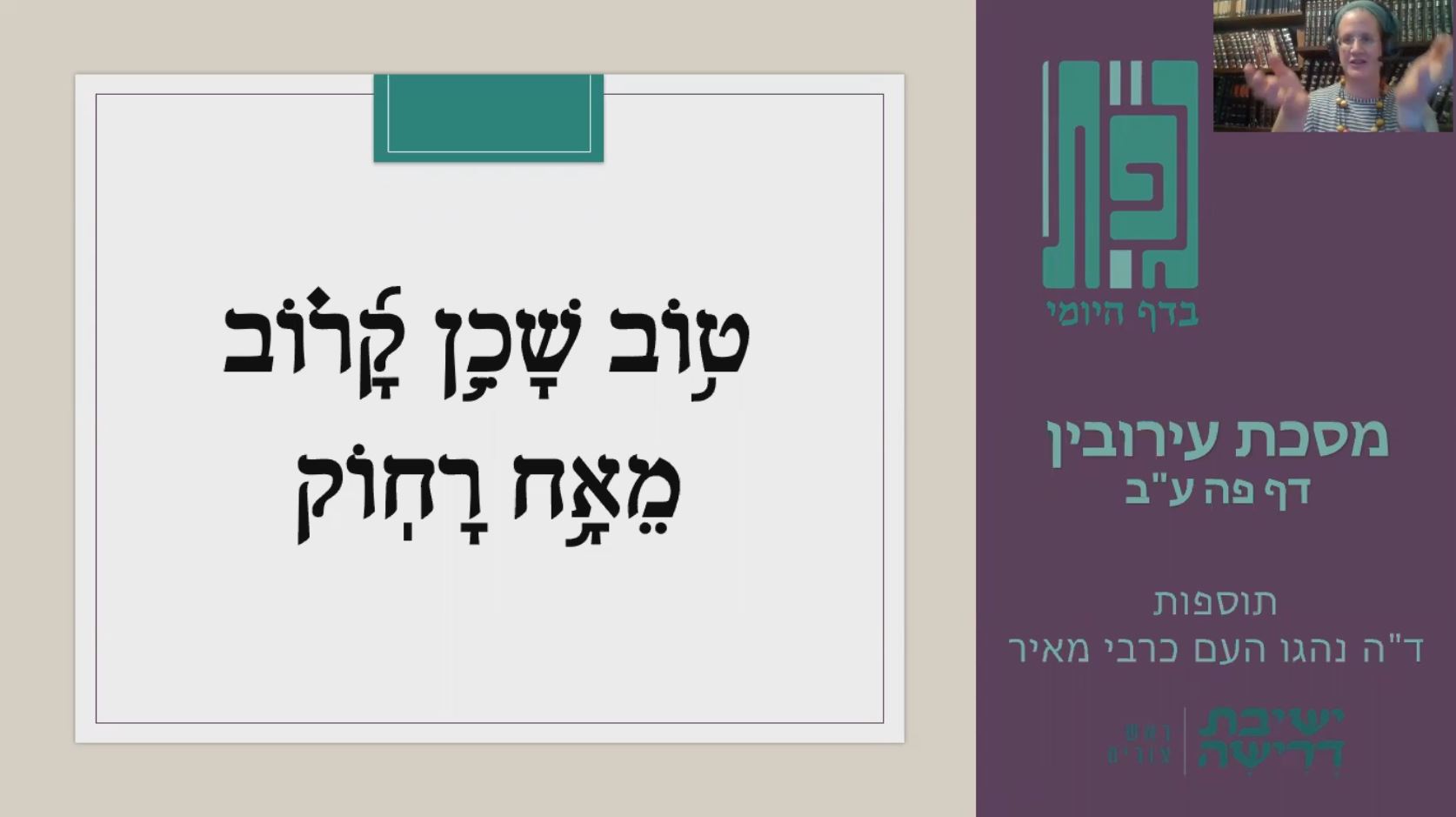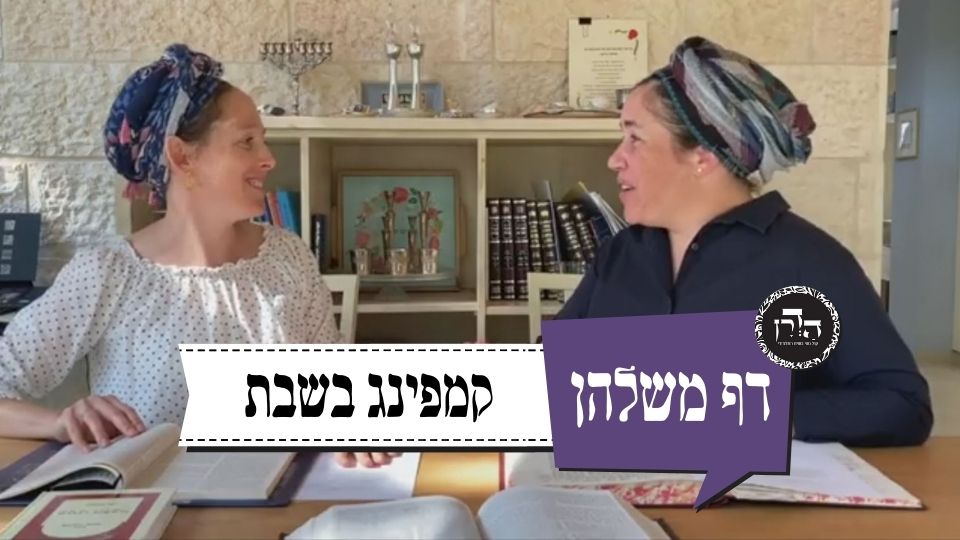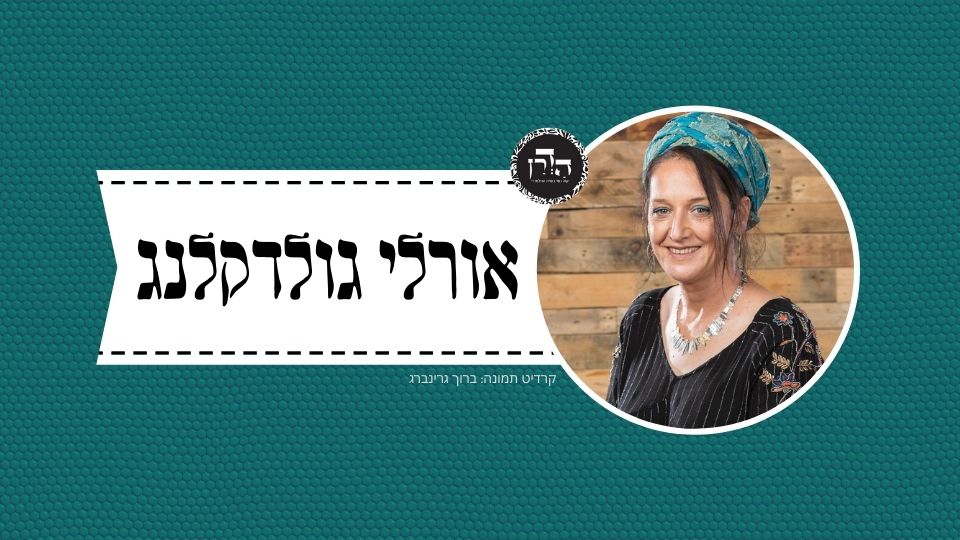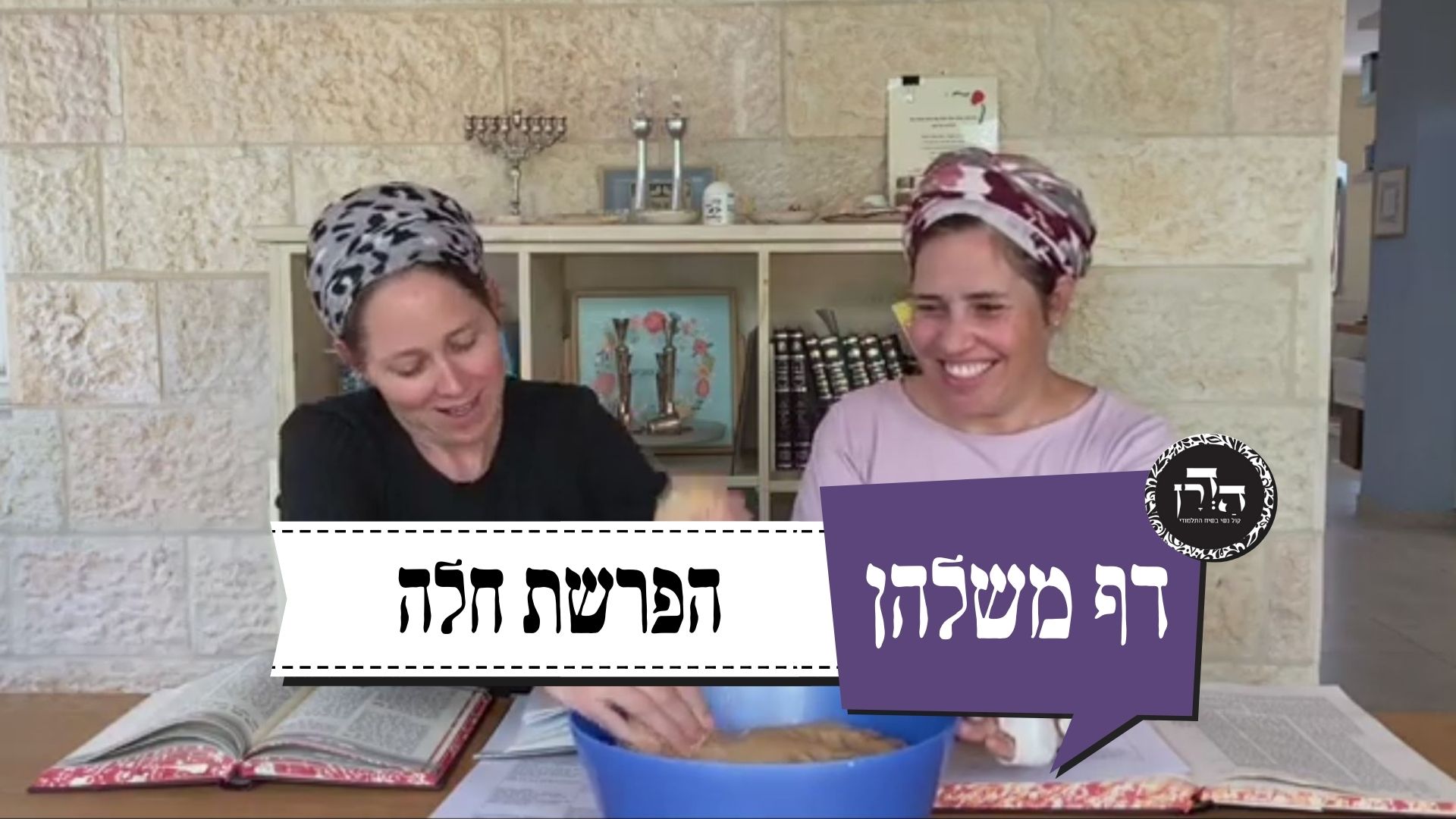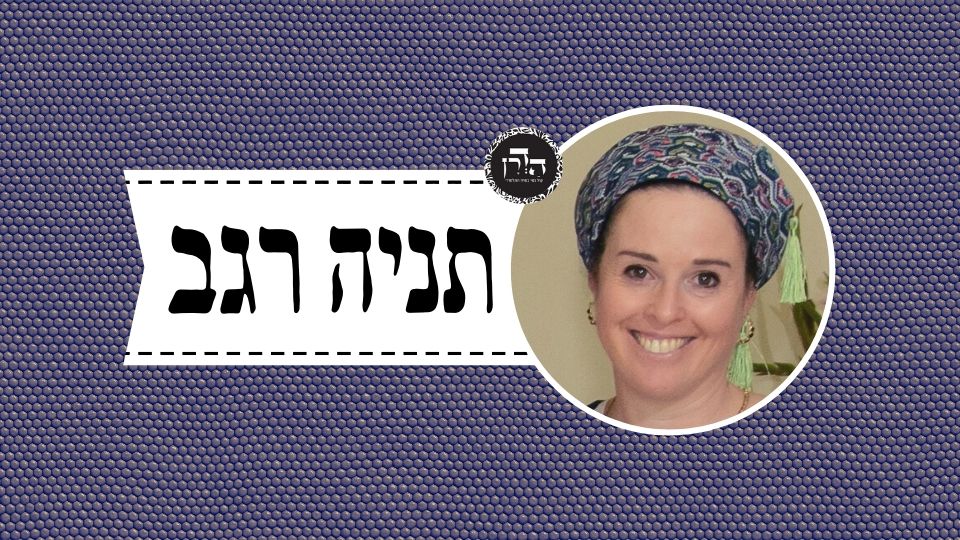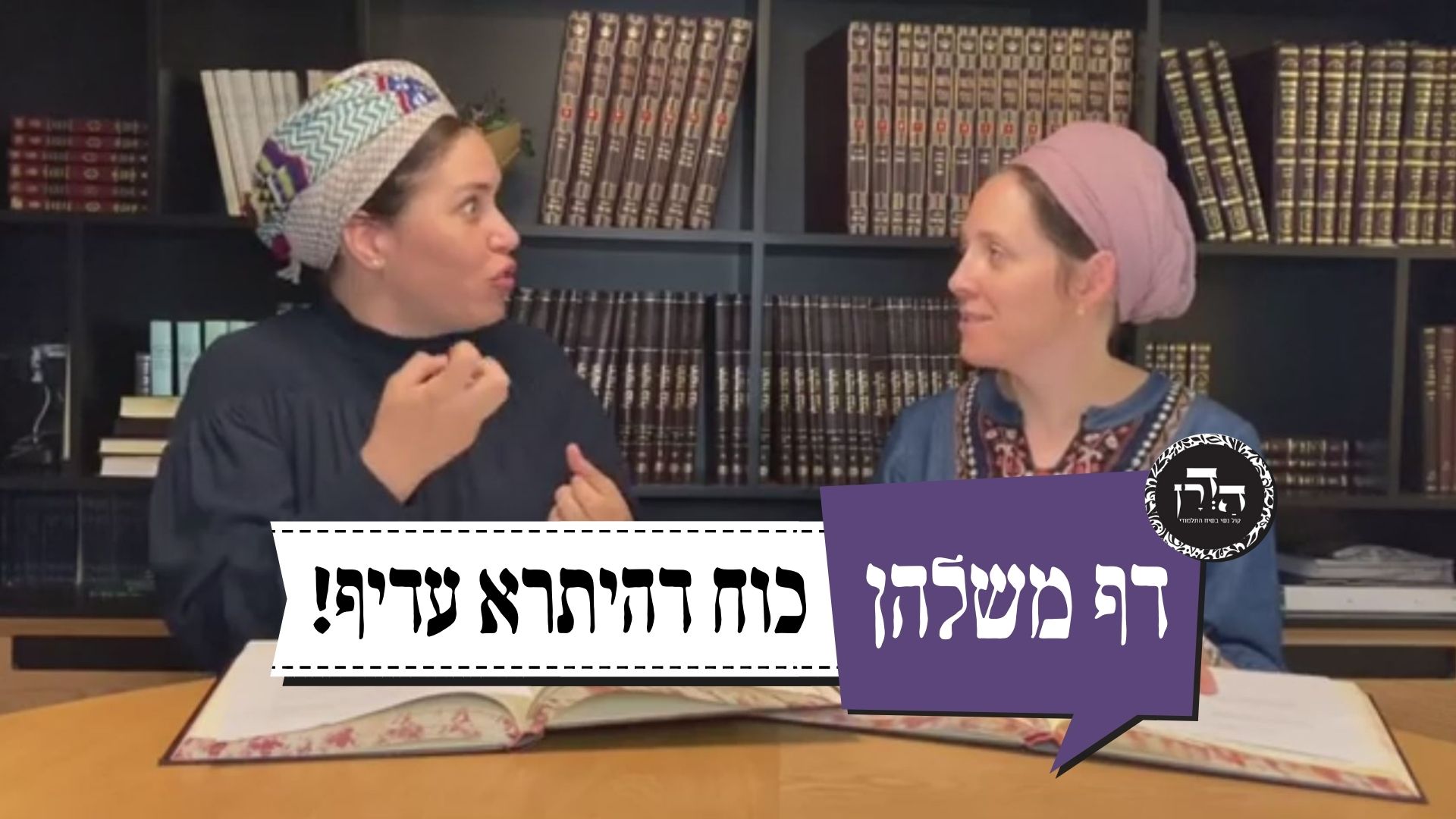עירובין קא
מַתְנִי׳ הַדֶּלֶת שֶׁבַּמּוּקְצֶה, וַחֲדָקִים שֶׁבַּפִּרְצָה, וּמַחְצָלוֹת — אֵין נוֹעֲלִין בָּהֶן אֶלָּא אִם כֵּן גְּבוֹהִים מִן הָאָרֶץ.
MISHNA: With regard to the door to a rear court, i.e., a door that opens from a house to the courtyard situated behind it, which is typically not a proper door but merely a wooden board without hinges that closes off the doorway; and likewise bundles of thorns that seal a breach; and reed mats, one may not close an opening with them on Shabbat. This would be considered building or completing a building, unless they remain above the ground even when they are open.
גְּמָ׳ וּרְמִינְהוּ: דֶּלֶת הַנִּגְרֶרֶת וּמַחְצֶלֶת הַנִּגְרֶרֶת, וְקַנְקַן הַנִּגְרָר, בִּזְמַן שֶׁקְּשׁוּרִין וּתְלוּיִין — נוֹעֲלִין בָּהֶן בְּשַׁבָּת, וְאֵין צָרִיךְ לוֹמַר בְּיוֹם טוֹב!
GEMARA: And the Gemara raises a contradiction from a baraita: With regard to a door, or a mat, or a lattice [kankan] that drag along the ground and are used for closing up openings, when they are tied and suspended in place one may close an opening with them on Shabbat; and needless to say this is permitted on a Festival. According to the baraita, the critical factor is apparently that they must be tied and suspended, not that they have to be held up above the ground.
אָמַר אַבָּיֵי: בְּשֶׁיֵּשׁ לָהֶם צִיר, רָבָא אָמַר: בְּשֶׁהָיָה לָהֶן צִיר.
Abaye said: The baraita is referring to ones that have a hinge. As they are considered proper doors, closing them does not appear like building. Rava said: The baraita is referring even to doors that once had a hinge, even though they no longer have one. These partitions also bear the clear form of a door, and therefore one’s action does not have the appearance of building.
מֵיתִיבִי: דֶּלֶת הַנִּגְרֶרֶת, וּמַחְצֶלֶת הַנִּגְרֶרֶת, וְקַנְקַן הַנִּגְרָר, בִּזְמַן שֶׁקְּשׁוּרִין וּתְלוּיִין וּגְבוֹהִים מִן הָאָרֶץ אֲפִילּוּ מְלֹא נִימָא — נוֹעֲלִין בָּהֶן, וְאִם לָאו — אֵין נוֹעֲלִין בָּהֶן!
The Gemara raises an objection from another baraita: With regard to a door, or a mat, or a lattice that drag along the ground, when they are tied and suspended in place and they are held above the ground even by as little as a hairbreadth, one may close an opening with them. However, if they are not raised in this manner, one may not close an opening with them. Clearly, these doors must indeed be raised above the ground as well.
אַבָּיֵי מְתָרֵץ לְטַעְמֵיהּ, וְרָבָא מְתָרֵץ לְטַעְמֵיהּ. אַבָּיֵי מְתָרֵץ לְטַעְמֵיהּ: אוֹ שֶׁיֵּשׁ לָהֶן צִיר, אוֹ שֶׁגְּבוֹהִין מִן הָאָרֶץ. רָבָא מְתָרֵץ לְטַעְמֵיהּ: כְּשֶׁהָיָה לָהֶן צִיר, אוֹ שֶׁגְּבוֹהִין מִן הָאָרֶץ.
The Gemara answers: Abaye reconciles the objection in accordance with his reasoning, and Rava reconciles the objection in accordance with his reasoning. The Gemara elaborates: Abaye reconciles the objection in accordance with his reasoning by adding to the baraita: They must either have a hinge or be held above the ground. Rava likewise reconciles the objection in accordance with his reasoning, as he reads: They must have had a hinge or else be held above the ground.
תָּנוּ רַבָּנַן: סוֹכֵי קוֹצִים וַחֲבִילִין שֶׁהִתְקִינָן לְפִירְצָה שֶׁבְּחָצֵר, בִּזְמַן שֶׁקְּשׁוּרִין וּתְלוּיִין — נוֹעֲלִין בָּהֶן בְּשַׁבָּת, וְאֵין צָרִיךְ לוֹמַר בְּיוֹם טוֹב.
The Sages taught a baraita: With regard to branches of thorn bushes or bundles of wood that were arranged so that they sealed off a breach in a courtyard, when they are tied and suspended in place, one may close an opening with them on Shabbat; and needless to say, this is permitted on a Festival.
תָּנֵי רַבִּי חִיָּיא: דֶּלֶת אַלְמָנָה הַנִּגְרֶרֶת — אֵין נוֹעֲלִין בָּהּ. הֵיכִי דָּמֵי דֶּלֶת אַלְמָנָה? אִיכָּא דְּאָמְרִי דְּחַד שִׁיפָא, וְאִיכָּא דְּאָמְרִי דְּלֵית לֵיהּ גַּשְׁמָה.
Rabbi Ḥiyya taught a baraita: With regard to a widowed door that drags along the ground, one may not close an opening with it. The Gemara asks: What are the circumstances of a widowed door? Some say it refers to a door built from a single plank, which does not look like a door, and others say it is a door that does not have a lower doorsill (ge’onim) and that touches the ground when closed.
אָמַר רַב יְהוּדָה: הַאי מְדוּרְתָּא, מִמַּעְלָה לְמַטָּה — שְׁרֵי, מִמַּטָּה לְמַעְלָה — אֲסִיר.
With regard to activities that are prohibited because of their similarity to building, the Gemara cites a teaching that Rav Yehuda said: When arranging a pile of wood for a fire on a Festival, if the logs are arranged from the top down, i.e., the upper logs are temporarily suspended in the air while the lower logs are inserted below them, it is permitted. However, if the wood is placed from the bottom up, it is prohibited, as the arrangement of wood in the regular manner is a form of building.
וְכֵן בֵּיעֲתָא, וְכֵן קִידְרָא, וְכֵן פּוּרְיָא, וְכֵן חָבִיתָא.
And the same applies to eggs that are to be arranged in a pile, and the same applies to a cauldron that is to be set down on a fire by means of supports, and the same applies to a bed that will be placed on its frame, and the same applies to barrels arranged in a cellar. In all these cases, the part that goes on top must be temporarily suspended in the air while the lower section is inserted beneath it.
אֲמַר לֵיהּ הָהוּא מִינָא לְרַבִּי יְהוֹשֻׁעַ בֶּן חֲנַנְיָה: חִדְקָאָה! דִּכְתִיב בְּכוּ ״טוֹבָם כְּחֵדֶק״. אֲמַר לֵיהּ: שָׁטְיָא, שְׁפֵיל לְסֵיפֵיהּ דִּקְרָא, דִּכְתִיב: ״יָשָׁר מִמְּסוּכָה״. וְאֶלָּא מַאי ״טוֹבָם כְּחֵדֶק״? כְּשֵׁם שֶׁחֲדָקִים הַלָּלוּ מְגִינִּין עַל הַפִּירְצָה, כָּךְ טוֹבִים שֶׁבָּנוּ מְגִינִּים עָלֵינוּ. דָּבָר אַחֵר: ״טוֹבָם כְּחֵדֶק״, שֶׁמְּהַדְּקִין אֶת אוּמּוֹת הָעוֹלָם לְגֵיהִנָּם, שֶׁנֶּאֱמַר: ״קוּמִי וָדוֹשִׁי בַת צִיּוֹן כִּי קַרְנֵךְ אָשִׂים בַּרְזֶל וּפַרְסוֹתַיִךְ אָשִׂים נְחוּשָׁה וַהֲדִיקּוֹת עַמִּים רַבִּים וְגוֹ׳״.
With regard to bundles of thorns used to seal a breach, the Gemara cites a related incident: A certain heretic once said to Rabbi Yehoshua ben Ḥananya: Man of thorns! For it says about you: “The best of them is as a brier” (Micah 7:4), which indicates that even Israel’s best are merely thorns. He said to him: Fool, go down to the end of the verse: “The most upright is worse than a thorn hedge,” a derogatory expression meant as praise. Rather, what is the meaning of the best of them is as a brier? It means that just as these thorns protect a breach, so the best among us protect us. Alternatively: The best of them is as a brier [ḥedek] means that they grind [mehaddekin] the nations of the world into Gehenna, as it is stated: “Arise and thresh, O daughter of Zion, for I will make your horn iron, and I will make your hoofs brass, and you shall beat in pieces [vahadikot] many peoples; and you shall devote their gain to God, and their substance to the God of the whole earth” (Micah 4:13).
מַתְנִי׳ לֹא יַעֲמוֹד אָדָם בִּרְשׁוּת הַיָּחִיד וְיִפְתַּח בִּרְשׁוּת הָרַבִּים, בִּרְשׁוּת הָרַבִּים וְיִפְתַּח בִּרְשׁוּת הַיָּחִיד, אֶלָּא אִם כֵּן עָשָׂה מְחִיצָה גְּבוֹהָ עֲשָׂרָה טְפָחִים, דִּבְרֵי רַבִּי מֵאִיר.
MISHNA: A person may not stand in the private domain and open a door located in the public domain with a key, lest he inadvertently transfer the key from one domain to the other. Likewise, one may not stand in the public domain and open a door in the private domain with a key, unless in the latter case he erected a partition ten handbreadths high around the door and stands inside it. This is the statement of Rabbi Meir.
אָמְרוּ לוֹ: מַעֲשֶׂה בְּשׁוּק שֶׁל פַּטָּמִים שֶׁהָיָה בִּירוּשָׁלַיִם, וְשֶׁהָיוּ נוֹעֲלִין וּמַנִּיחִין אֶת הַמַּפְתֵּחַ בַּחַלּוֹן שֶׁעַל גַּבֵּי הַפֶּתַח. רַבִּי יוֹסֵי אוֹמֵר: שׁוּק שֶׁל צַמָּרִים הֲוָה.
The Rabbis said to him: There was an incident at the poultry dealers’ market in Jerusalem, where they would fatten fowl for slaughter (Rabbeinu Ḥananel), and they would lock the doors to their shops and place the key in the window that was over the door, which was more than ten handbreadths off the ground, and nobody was concerned about the possible violation of any prohibition. Rabbi Yosei says: That place was a market of wool dealers.
גְּמָ׳ וְרַבָּנַן, אָמַר רַבִּי מֵאִיר רְשׁוּת הָרַבִּים — וּמַהְדְּרוּ אִינְהוּ כַּרְמְלִית! דְּאָמַר רַבָּה בַּר בַּר חָנָה אָמַר רַבִּי יוֹחָנָן: יְרוּשָׁלַיִם אִלְמָלֵא דַּלְתוֹתֶיהָ נִנְעָלוֹת בַּלַּיְלָה — חַיָּיבִין עָלֶיהָ מִשּׁוּם רְשׁוּת הָרַבִּים.
GEMARA: The Gemara asks: And those Rabbis, who cited the case of the poultry dealers of Jerusalem to rebut Rabbi Meir’s opinion, Rabbi Meir spoke to them about unlocking a door in a private domain while standing in the public domain, and they responded with an incident involving a karmelit. As Rabba bar bar Ḥana said that Rabbi Yoḥanan said: With regard to Jerusalem, were it not for the fact that its doors are locked at night, one would be liable for carrying in it on Shabbat, because its thoroughfares have the status of the public domain. However, since Jerusalem’s doors are typically locked, it is considered one large karmelit, which is subject to rabbinic prohibitions. How, then, could a proof be cited from the markets of Jerusalem with regard to the transfer of objects between a public domain and a private domain, which is prohibited by Torah law?
אָמַר רַב פָּפָּא: כָּאן — קוֹדֶם שֶׁנִּפְרְצוּ בָּהּ פְּרָצוֹת, כָּאן — לְאַחַר שֶׁנִּפְרְצוּ בָּהּ פְּרָצוֹת.
Rav Pappa said: Here, in the statement of Rabbi Yohanan, Jerusalem was considered a karmelit during the period before breaches were made in its walls. Its doors did not turn it into a public domain, as they were locked. Whereas there, the Rabbis in the mishna are referring to the time after breaches had been made in the walls, and it therefore acquired the status of a public domain.
רָבָא אָמַר: סֵיפָא אֲתָאן לְשַׁעֲרֵי גִינָּה, וְהָכִי קָאָמַר: וְכֵן לֹא יַעֲמוֹד בִּרְשׁוּת הַיָּחִיד וְיִפְתַּח בְּכַרְמְלִית, בְּכַרְמְלִית וְיִפְתַּח בִּרְשׁוּת הַיָּחִיד,
Rava said: In the latter clause of the mishna we came to a different issue, i.e., the final section of the mishna is not designed to counter Rabbi Meir’s statement with regard to the public domain. Rather, it refers to the gates of a garden with an area greater than two beit se’a in size, whose legal status is that of a karmelit. Consequently, the mishna is saying as follows: And likewise, one may not stand in the private domain and open a door in a karmelit; neither may one stand in a karmelit and open a door in the private domain,
אֶלָּא אִם כֵּן עָשָׂה מְחִיצָה גְּבוֹהָה עֲשָׂרָה טְפָחִים, דִּבְרֵי רַבִּי מֵאִיר. אָמְרוּ לוֹ: מַעֲשֶׂה בְּשׁוּק שֶׁל פַּטָּמִים שֶׁהָיָה בִּירוּשָׁלַיִם, שֶׁהָיוּ נוֹעֲלִין וּמַנִּיחִין אֶת הַמַּפְתֵּחַ בַּחַלּוֹן שֶׁעַל גַּבֵּי הַפֶּתַח. רַבִּי יוֹסֵי אוֹמֵר: שׁוּק שֶׁל צַמָּרִים הָיָה.
unless he erected a partition ten handbreadths high around the door and stands inside it; this is the statement of Rabbi Meir. The Rabbis said to him: An incident occurred at the poultry dealers’ market in Jerusalem, as they would lock the doors to their shops and place the key in a window that was over the door, which was higher than ten handbreadths. Rabbi Yosei says: That place was a market of wool dealers.
תָּנוּ רַבָּנַן: פִּתְחֵי שַׁעֲרֵי גִינָּה, בִּזְמַן שֶׁיֵּשׁ לָהֶן בֵּית שַׁעַר מִבִּפְנִים — פּוֹתֵחַ וְנוֹעֵל מִבִּפְנִים, מִבַּחוּץ — פּוֹתֵחַ וְנוֹעֵל מִבַּחוּץ, מִכָּאן וּמִכָּאן — פּוֹתֵחַ וְנוֹעֵל כָּאן וְכָאן. אֵין לָהֶן לֹא לְכָאן וְלֹא לְכָאן — אֲסוּרִין כָּאן וְכָאן.
The Sages taught a baraita: With regard to the entrances of garden gates that open into a public domain, when they have a gatehouse on the inside, which is a private domain, one may open and close them from within. This is because the lock, which is four handbreadths wide and ten handbreadths high, also constitutes a private domain. Consequently, the key may be passed from the gatehouse to the lock. However, they may not be opened or closed from without, as the key may not be passed from the public domain to the private domain of the lock. If the gatehouse is on the outside, one may open and close the doors from without, as once again both the lock and the gatehouse are private domains. They may not, however, be opened from within, as the key may not be passed from the garden, which is a karmelit, to the lock. If they have a gatehouse from here, from within, and there, from without, one may open and close the doors here and there. If they do not have a gatehouse; neither here nor there, it is prohibited to open or close the doors here and there, as one may not carry the key either in the public domain or in the garden.
וְכֵן חֲנוּיוֹת הַפְּתוּחוֹת לִרְשׁוּת הָרַבִּים, בִּזְמַן שֶׁהַמַּנְעוּל לְמַטָּה מֵעֲשָׂרָה — מֵבִיא מַפְתֵּחַ מֵעֶרֶב שַׁבָּת וּמַנִּיחוֹ בָּאִיסְקוּפָּה, לְמָחָר פּוֹתֵחַ וְנוֹעֵל וּמַחְזִירוֹ לָאִיסְקוּפָּה.
And likewise, this is the halakha with regard to stores that open into the public domain: When the lock is below ten handbreadths off the ground, it is in the public domain. In that case, one may bring a key on Shabbat eve and place it on the threshold, whose legal status is that of a karmelit, and the following day he may open and close the door and return the key to the threshold.
וּבִזְמַן שֶׁהַמַּנְעוּל לְמַעְלָה מֵעֲשָׂרָה — מֵבִיא מַפְתֵּחַ מֵעֶרֶב שַׁבָּת וּמַנִּיחוֹ בַּמַּנְעוּל, לְמָחָר פּוֹתֵחַ וְנוֹעֵל וּמַחְזִירוֹ לִמְקוֹמוֹ, דִּבְרֵי רַבִּי מֵאִיר.
And when the lock is above ten handbreadths off the ground, one may bring a key on Shabbat eve and place it in the lock. And the following day he may open and close the door and return the key to its place on top of the lock. This is the statement of Rabbi Meir.
וַחֲכָמִים אוֹמְרִים: אַף בִּזְמַן שֶׁהַמַּנְעוּל לְמַעְלָה מֵעֲשָׂרָה טְפָחִים — מֵבִיא מַפְתֵּחַ מֵעֶרֶב שַׁבָּת, וּמַנִּיחוֹ בָּאִיסְקוּפָּה, לְמָחָר פּוֹתֵחַ וְנוֹעֵל וּמַחְזִירוֹ לִמְקוֹמוֹ, אוֹ בַּחַלּוֹן שֶׁעַל גַּבֵּי הַפֶּתַח.
And the Rabbis say: Even when the lock is above ten handbreadths off the ground, one may bring a key on Shabbat eve and place it on the threshold, and the following day he may open and close the door and return the key to its place on the threshold or in the window that is above the door.
אִם יֵשׁ בַּחַלּוֹן אַרְבָּעָה עַל אַרְבָּעָה — אָסוּר, מִפְּנֵי שֶׁהוּא כְּמוֹצִיא מֵרְשׁוּת לִרְשׁוּת.
However, if the window is four by four handbreadths and ten handbreadths above the ground, its status is that of a private domain, and it is therefore prohibited to place the key in the window, because it would be as though one is transferring the key from one domain, a karmelit, to another private domain.
מִדְּקָאָמַר: ״וְכֵן חֲנוּיוֹת״, מִכְּלָל דִּבְאִיסְקוּפַּת כַּרְמְלִית עָסְקִינַן. הַאי מַנְעוּל הֵיכִי דָּמֵי? אִי דְּלֵית בֵּיהּ אַרְבָּעָה, מְקוֹם פְּטוּר הוּא.
The Gemara infers: From the fact that it is stated in the baraita: And similarly, stores, this proves by inference that we are dealing with a threshold that is a karmelit, as it would otherwise be prohibited to transfer the key from the threshold to the lock. If so, with regard to this lock, what are the circumstances? If there is not an area of four by four handbreadths in it, it does not have the status of a prohibited domain at all, and it is an exempt domain.
וְאִי אִית בֵּיהּ אַרְבָּעָה, בְּהָא לֵימָא רַבָּנַן: אַף בִּזְמַן שֶׁהַמַּנְעוּל לְמַעְלָה מֵעֲשָׂרָה מֵבִיא מַפְתֵּחַ מֵעֶרֶב שַׁבָּת וּמַנִּיחוֹ בָּאִיסְקוּפָּה, לְמָחָר פּוֹתֵחַ וְנוֹעֵל בּוֹ וּמַחְזִירוֹ לָאִיסְקוּפָּה אוֹ לַחַלּוֹן שֶׁעַל גַּבֵּי הַפֶּתַח? וְהָא קָא מְטַלְטֵל מִכַּרְמְלִית לִרְשׁוּת הַיָּחִיד!
And if it is four by four handbreadths, and therefore a private domain, would the Rabbis say in that case: Even when the lock is above ten handbreadths off the ground, he may bring a key on Shabbat eve and place it in the threshold, and the following day he may open and close the door and return the key to the threshold or to a window above the door? Isn’t he moving an object from a karmelit to the private domain?
אָמַר אַבָּיֵי: לְעוֹלָם דְּאֵין בּוֹ אַרְבָּעָה, וְיֵשׁ בּוֹ לָחוֹק וּלְהַשְׁלִימוֹ לְאַרְבָּעָה.
Abaye said: Actually, the lock is not four by four handbreadths, but there is enough space in the door surrounding it to carve out a hole that would complete its area to the requisite four handbreadths.
וּבְהָא פְּלִיגִי: דְּרַבִּי מֵאִיר סָבַר חוֹקְקִין לְהַשְׁלִים. וְרַבָּנַן סָבְרִי: אֵין חוֹקְקִין לְהַשְׁלִים.
And this is their dispute: Rabbi Meir, who conforms to his standard line of reasoning, maintains that one carves out the space to complete it to four handbreadths. In other words, if a small opening is located in a place large enough for it to be widened, the place is viewed as though it had already been carved out, providing the opening with the larger dimensions. And the Rabbis conform to their standard line of reasoning, as they maintain that one does not carve out the space to complete it to four handbreadths. Consequently, the lock in its present condition is not large enough to constitute a place of significance, and it is therefore regarded as an exempt place.
אָמַר רַב בִּיבִי בַּר אַבָּיֵי, שְׁמַע מִינַּהּ מֵהָא מַתְנִיתָא תְּלָת: שְׁמַע מִינַּהּ חוֹקְקִין לְהַשְׁלִים. וּשְׁמַע מִינַּהּ הֲדַר בֵּיהּ רַבִּי מֵאִיר מִשַּׁעֲרֵי גִינָּה.
Rav Beivai bar Abaye said: Learn from this baraita three halakhot: Learn from it that according to Rabbi Meir, we carve out to complete the necessary dimensions. And further learn from it that Rabbi Meir retracted his ruling with regard to garden gates. According to Rava, Rabbi Meir prohibited a man standing in a karmelit from opening a door in a private domain, and yet here he permits a similar case.
וְשָׁמְעַתְּ מִינַּהּ מִדְּרַבָּנַן אִיתָא לִדְרַב דִּימִי, דְּכִי אֲתָא רַב דִּימִי אָמַר רַבִּי יוֹחָנָן: מָקוֹם שֶׁאֵין בּוֹ אַרְבָּעָה עַל אַרְבָּעָה — מוּתָּר לִבְנֵי רְשׁוּת הָרַבִּים וְלִבְנֵי רְשׁוּת הַיָּחִיד לְכַתֵּף עָלָיו, וּבִלְבַד שֶׁלֹּא יַחֲלִיפוּ.
And learn from the statement of the Rabbis that the ruling of Rav Dimi is accepted. As when Rav Dimi came to Babylonia from Eretz Israel, he said that Rabbi Yoḥanan said: A place with an area that is less than four by four handbreadths and that is set apart from the surrounding area is an exempt domain with regard to carrying on Shabbat. Consequently, if the domain is located between a public domain and a private domain, it is permitted for both the people in the public domain and for the people in the private domain to adjust the burden onto their shoulders, provided that they do not exchange objects with one another. This ruling, that it is prohibited to exchange articles, is supported by the position of the Rabbis that it is prohibited to transfer the key from the threshold, which is a karmelit, via the lock, an exempt domain, to the private domain of the window, as one may not transfer an object from one prohibited domain to another, even via an exempt domain.
מַתְנִי׳ נֶגֶר שֶׁיֵּשׁ בְּרֹאשׁוֹ גְּלוֹסְטְרָא, רַבִּי אֱלִיעֶזֶר אוֹסֵר וְרַבִּי יוֹסֵי מַתִּיר.
MISHNA: With regard to a bolt that secures a door in place and that has a thick knob [gelustera] at its end, a useful implement for a variety of purposes, the tanna’im disagree whether the bolt has the status of a vessel, and one may therefore close the door with it, or whether it is considered a cross beam, which would mean that doing so is classified as building. Rabbi Eliezer prohibits its use, and Rabbi Yosei permits it.
אָמַר רַבִּי אֱלִיעֶזֶר: מַעֲשֶׂה בִּכְנֶסֶת שֶׁבִּטְבֶרְיָא שֶׁהָיוּ נוֹהֲגִין בּוֹ הֶיתֵּר, עַד שֶׁבָּא רַבָּן גַּמְלִיאֵל וְהַזְּקֵנִים וְאָסְרוּ לָהֶן. רַבִּי יוֹסֵי אוֹמֵר: אִיסּוּר נָהֲגוּ בּוֹ, וּבָא רַבָּן גַּמְלִיאֵל וְהַזְּקֵנִים וְהִתִּירוּ לָהֶן.
Rabbi Eliezer said: An incident occurred in a synagogue in Tiberias, where they were accustomed to treat use of this bolt as permitted, until Rabban Gamliel and the Elders came and prohibited it to them. Rabbi Yosei says that the opposite was the case: At first they were accustomed to treat use of this bolt as prohibited, and Rabban Gamliel and the Elders came and permitted it to them.
גְּמָ׳ בְּנִיטָּל בְּאִגְדּוֹ — כּוּלֵּי עָלְמָא לָא פְּלִיגִי. כִּי פְּלִיגִי
GEMARA: The Gemara narrows the dispute: If the bolt can be moved by the rope with which it is attached to the door, everyone agrees that it is considered part of the door, and one may secure the door with it. When Rabbi Yosei and Rabbi Eliezer disagree,




